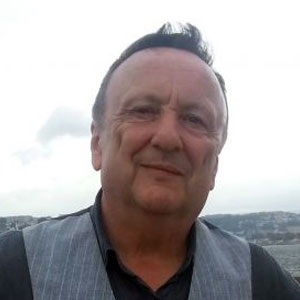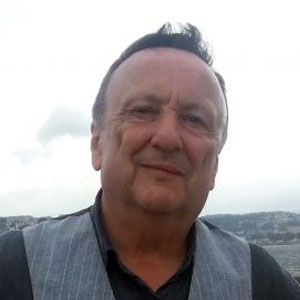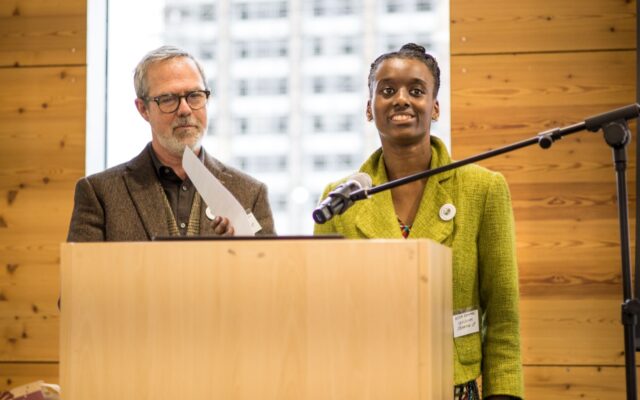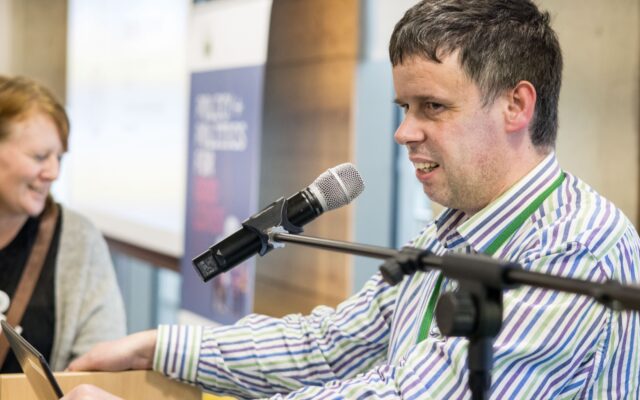Comment
 No one should have to pass a test to qualify as a human being
No one should have to pass a test to qualify as a human being
It is shameful that we have to argue that certain types of person actually do qualify as humans, as if there were some sort of reasonable dispute about it. However, that is where we find ourselves, as yet another shocking undercover television documentary – the Panorama programme on abuse and violence at the private Whorlton Hall hospital in County Durham – recently confirmed.
In this issue, two mothers write about how their shocking experiences, coupled with equally horrifying stories they heard from others, prompted them to start campaigns to demonstrate the humanity of people with learning disabilities and those with autism.
Isabelle Garnett’s #HumanToo movement makes a point that should not have to be made – that the more than 2,000 adults and young people with learning disabilities locked away in oppressive institutions are human, so ‘deserve’ the same human rights, respect and love as anyone else. Julie Newcombe’s work on Rightful Lives makes a similarly stark point – people have the right to enjoy their lives, not to have them frittered away by the mind-boggling indifference and callousness of many of those who commit them, detain them, mistreat them and keep them needlessly locked away from the rest of society.
<<It is at that moment when a person’s humanity is denied that the violence, the abuse, the deprivation of rights and the indifference begin>>
As Tim Stainton makes clear in his elegant essay on inclusion and citizenship, we should not make people jump through a series of hoops before we decide to ‘allow’ them to be part of society. On what grounds do we insist that people should have a certain level of reason, or moral capacity, or verbal ability, or literacy, or anything else, before we allow then the same rights as everyone else? It is not just the certain types of human who pass these tests – members of the ‘lucky sperm club’ as sociologist Michael Young calls them – who should qualify for all the privileges that being human bestows. To be born human is enough, and it is the job of society to bend and shape itself to accommodate all its human members.
It is at that moment when a person’s humanity is denied that the violence, the abuse, the deprivation of rights and the indifference begin. We should not have to say it, but we must: people with learning disabilities are human too.
Skiing, singing, daring and determination
Our cover story is about Stephanie Crawshaw, who has profound and complex disabilities, uses a wheelchair and does not communicate verbally, who went skiing on the slopes of the Austrian mountains with her father Andy and a heroic support team. It is a story that would make the average health and safety officer or risk assessor want to lie down in a darkened room. But it happened, and it was brilliantly successful. This was because the family, support organisation Linkability and the ski instructors involved saw no limits, and viewed Stephanie as the daring and admirable human she is, who wants to take risks and feel freedom.
Elsewhere, the Include Choir have made a witty and joyful song explaining, of all things, the Mental Capacity Act. Our interview is with the remarkable David Towell. Born two days after the end of the Second World War and one day after his profoundly disabled sister was taken into institutional care, Towell has spent his life working alongside people with learning disabilities, fighting and advocating for rights and opportunities for them. Stephanie, her family and support team, the Include Choir, David Towell, Isabelle Garnett, Julie Newcombe – these are just some of the good guys. There are many thousands more across this country and the rest of the world. If the fight seems tough at times, and things seem dark, we should remember that.
Simon Jarrett Editor





